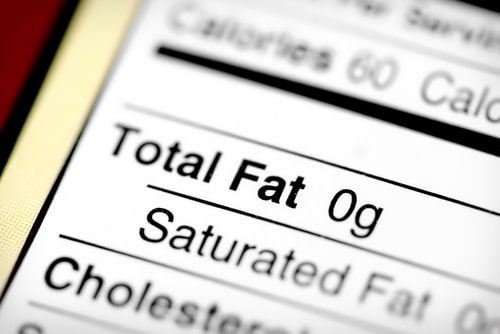
Not All Fats Are Equal
Fats may have gotten a bad reputation partially because of its association with saturated fat and trans fats, two types of fats that increase the risk of heart disease. But there are other fats called polyunsaturated fats and monounsaturated fats that differ in structure from saturated fat and trans fats and actually have benefits for heart health. Monounsaturated fats lower LDL cholesterol level, and thereby reduce one of the risk factors for heart disease. Some polyunsaturated fats, especially omega-3 fats found in fatty fish, have anti-inflammatory properties and properties that keep platelets from clumping together to cause a heart attack. Not all fats are bad for the heart.
Research also shows that not all fats are bad for your waistline. In a study carried out at the Nutritional Physiology Research Center in Australia, researchers found that omega-3 polyunsaturated fats boosted fat loss in subjects that worked out. Seventy-five male and female participants took either fish oil supplements or vegetable oil for 12 weeks. During that time half of each group ran three times a week for 45 minutes at a moderate intensity. At the end of the study, their body fat was measured using dual-energy x-ray absorptiometry.
The results? The only group that lost a significant amount of body fat was the group that exercised and took fish oil supplements. The researchers in this study believe that the omega-3 fatty acids they supplemented with help to boost the breakdown of fats during exercise. Sounds like a good reason to eat more wild Alaskan salmon, doesn’t it?
Good Fats May Improve Insulin Sensitivity
Another way omega-3 fats may help with weight loss is by increasing insulin sensitivity. Insulin is a hormone that boosts fat storage. That’s why you don’t want high levels circulating in your blood stream. In a study published in Diabetes Research, researchers found that supplementing with 3 grams of omega-3 fatty acids for 2 months increased insulin sensitivity. When insulin is more sensitive, you need less of it to do the job of lowering blood sugar levels, and there’s less available to put fat on your tummy and waistline. At the same time, omega-3 fatty acids lower triglyceride levels, a type of blood fat that’s linked with heart disease.
Other Problems with a Low Fat Diet
There’s another disadvantage of eating a low-fat diet. Low-fat foods are often high in carbs. When manufacturers make foods that are low fat, they add more sugar to make them taste better. This isn’t a good trade-off since processed carbs spike insulin levels.
You also need a certain amount of fat in your diet to supply two essential fatty acids called alpha-linolenic-acid and linoleic acid. Without these two essential fatty acids, you’ll suffer a wide range of symptoms include dry skin, dry eyes, and painful joints. Fat is important for synthesizing hormones that are involved in metabolism and for the absorption of fat-soluble vitamins that are needed for health. A very low-fat diet is an unhealthy one.
The Bottom Line?
Don’t be fat phobic. Instead choose healthy fats such as monounsaturated fats found in nuts and olive oil and polyunsaturated fats in fatty fish, walnuts and flaxseed. Dietary fat should make up between 20 and 30% of your daily calories. Eating the right kinds of fats can even give you a leg up in the fat loss department.
References:
NPI Center. “Running on Fish Oil: Benefits of Omega-3 Supplementation and Exercise”
Diabetes Research. “Dietary Supplementation of Omega-3 Polyunsaturated Fatty Acids Improves Insulin Sensitivity in Non-Insulin-Dependent Diabetes”
Related Articles By Cathe:
Do Low-Fat Diets Impede Weight Loss?
4 Reasons Why Low-Fat Diets Aren’t Best for Weight Loss
Choosing Healthy Fats: How Processing Affects the Nutritional Value of a Vegetable Oil

